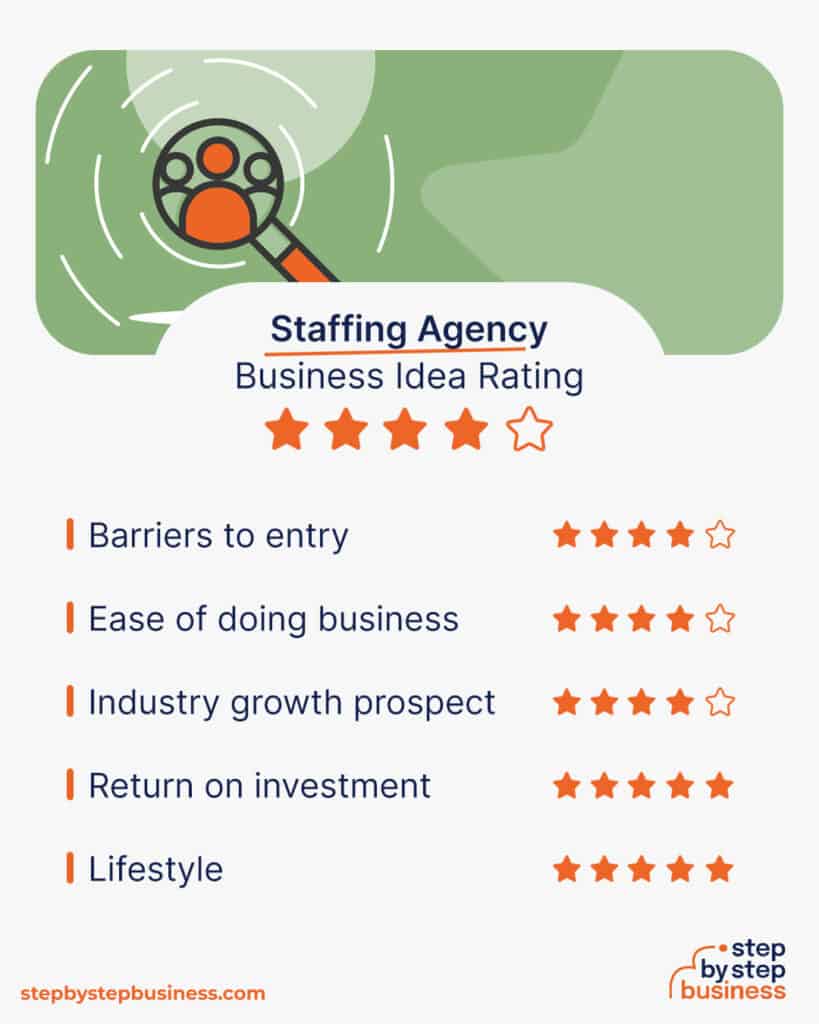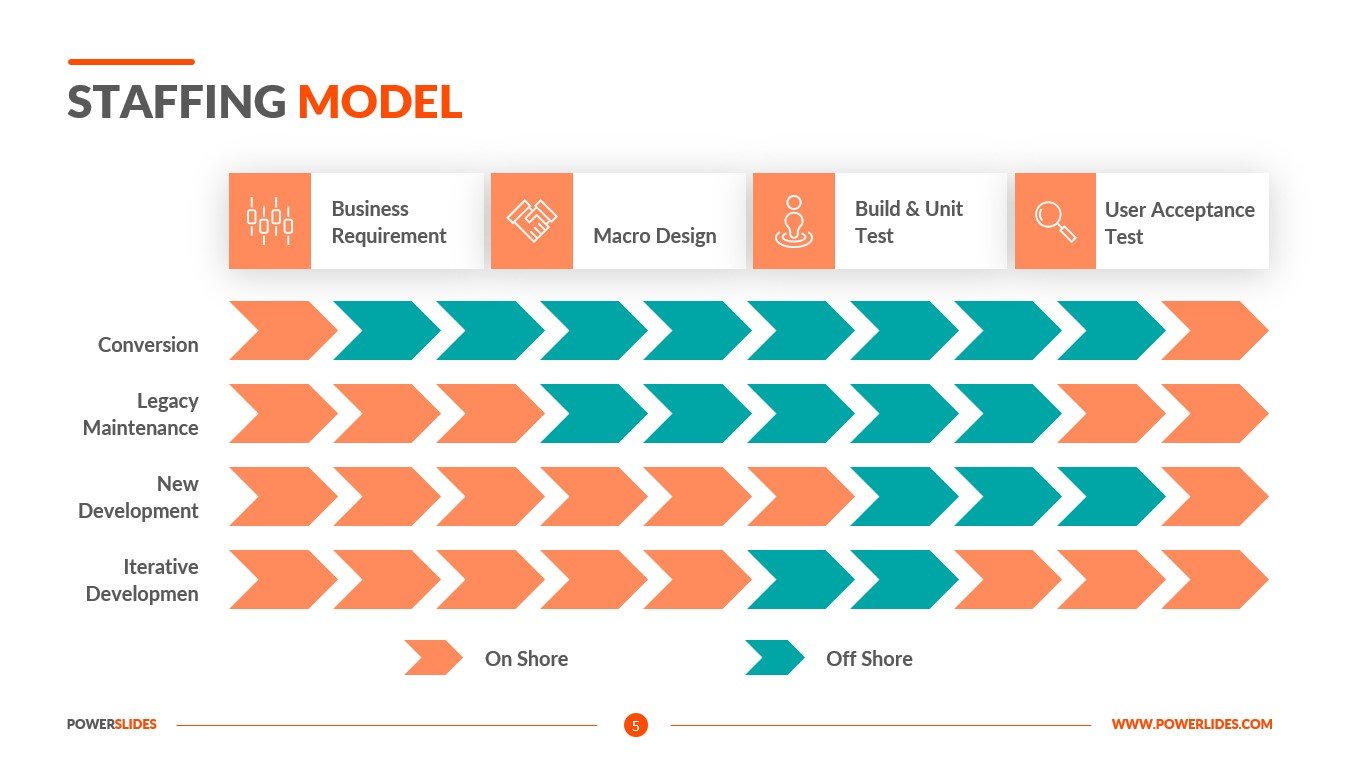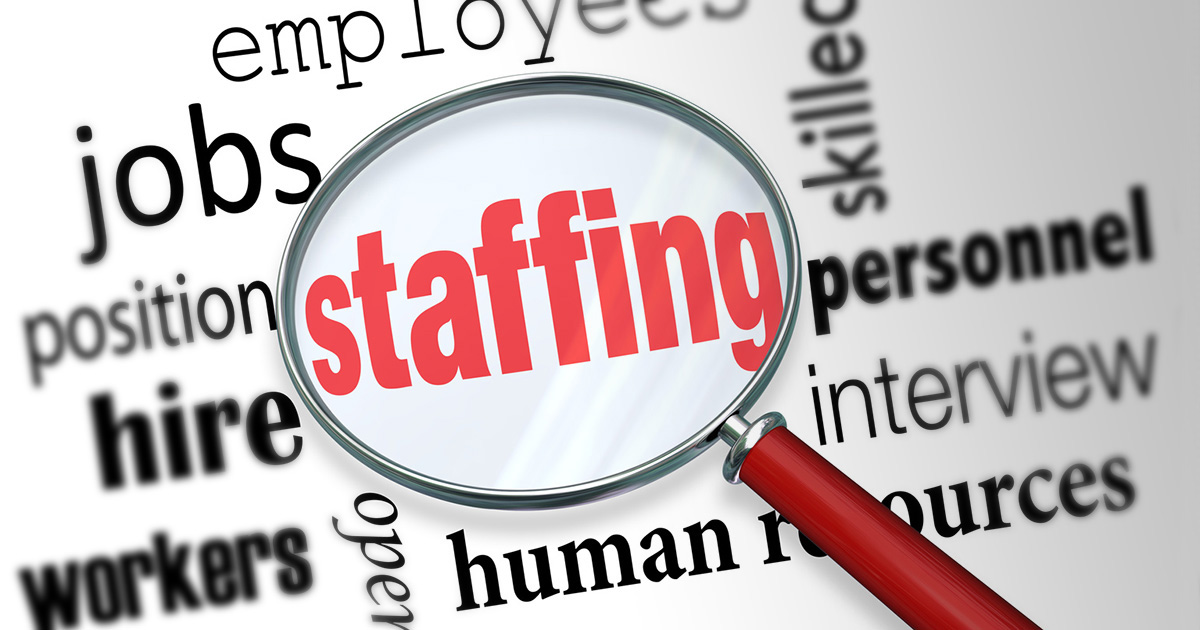Laying the Foundation: Understanding the Staffing Industry
The staffing industry has experienced significant growth in recent years, driven by the increasing demand for temporary and contract workers. As a result, starting a staffing agency business can be a lucrative venture for entrepreneurs who understand the industry and its complexities. The staffing industry encompasses a range of services, including temporary staffing, permanent placement, and executive search. Temporary staffing agencies provide workers on a short-term basis to fill gaps in a company’s workforce, while permanent placement agencies focus on finding long-term employees for clients. Executive search firms specialize in recruiting high-level executives and professionals for companies.
Understanding the different types of staffing agencies is crucial for entrepreneurs who want to start a staffing agency business. Each type of agency has its unique challenges and opportunities, and entrepreneurs must carefully consider their business model and target market before launching their venture. For instance, temporary staffing agencies require a strong network of temporary workers and a robust system for managing worker assignments and payroll. Permanent placement agencies, on the other hand, require a deep understanding of the job market and the ability to build strong relationships with clients and candidates.
The staffing industry is also subject to various regulations and laws, including employment laws and labor standards. Entrepreneurs who want to start a staffing agency business must ensure that they comply with these regulations and laws to avoid legal and financial risks. Additionally, staffing agencies must also consider the impact of technological advancements on the industry, such as the use of artificial intelligence and machine learning in recruitment and talent management.
Overall, understanding the staffing industry is essential for entrepreneurs who want to start a staffing agency business. By grasping the complexities of the industry, entrepreneurs can develop a solid business plan, build a strong team, and create a successful staffing agency that meets the needs of clients and candidates. Whether you’re interested in starting a temporary staffing agency, permanent placement agency, or executive search firm, it’s essential to have a deep understanding of the industry and its challenges and opportunities.
How to Develop a Winning Business Plan for Your Staffing Agency
A well-crafted business plan is essential for starting a staffing agency business. It serves as a roadmap for your company, outlining your goals, strategies, and financial projections. A comprehensive business plan should include several key elements, including market analysis, target market identification, competitive analysis, marketing and sales strategies, financial projections, and operational planning.
Market analysis involves researching the staffing industry, including its size, growth prospects, and trends. This information will help you understand the competitive landscape and identify opportunities for your business. Target market identification involves defining your ideal customer, including their needs, preferences, and pain points. This information will help you develop effective marketing and sales strategies.
Competitive analysis involves researching your competitors, including their strengths, weaknesses, and market share. This information will help you differentiate your business and develop a unique value proposition. Marketing and sales strategies should be designed to attract and retain customers, including tactics such as social media marketing, content marketing, and sales outreach.
Financial projections involve estimating your revenue, expenses, and profits over a certain period. This information will help you secure funding, manage cash flow, and make informed business decisions. Operational planning involves outlining your business processes, including recruitment, placement, and customer service.
When developing a business plan for your staffing agency, it’s essential to consider the unique challenges and opportunities of the industry. For example, staffing agencies must comply with employment laws and regulations, manage complex payroll and benefits systems, and maintain high levels of customer satisfaction.
A well-crafted business plan will help you navigate these challenges and achieve success in the competitive staffing industry. By outlining your goals, strategies, and financial projections, you’ll be better equipped to make informed business decisions and drive growth and profitability.
Some key components of a staffing agency business plan include:
- Executive summary: A brief overview of your business, including your mission statement, goals, and objectives.
- Company description: A detailed description of your business, including your structure, ownership, and management team.
- Market analysis: An analysis of the staffing industry, including its size, growth prospects, and trends.
- Target market identification: A description of your ideal customer, including their needs, preferences, and pain points.
- Competitive analysis: An analysis of your competitors, including their strengths, weaknesses, and market share.
- Marketing and sales strategies: A description of your tactics for attracting and retaining customers.
- Financial projections: Estimates of your revenue, expenses, and profits over a certain period.
- Operational planning: An outline of your business processes, including recruitment, placement, and customer service.
Choosing the Right Business Model for Your Staffing Agency
When starting a staffing agency business, one of the most critical decisions you’ll make is choosing the right business model. The staffing industry offers several business models, each with its pros and cons. Understanding these models and selecting the one that best fits your business goals and target market is essential for success.
Contingency-based staffing agencies are one of the most common business models in the industry. This model involves providing temporary or contract workers to clients on a contingency basis, meaning the agency only gets paid if the client hires the worker. The benefits of this model include low startup costs and minimal financial risk. However, the competition can be fierce, and the agency may face challenges in differentiating itself from competitors.
Retained search staffing agencies, on the other hand, work on a retained basis, meaning the client pays the agency a fee to find and recruit top talent. This model typically involves a more in-depth recruitment process and a higher level of service. The benefits of this model include higher profit margins and a more stable revenue stream. However, the agency may face challenges in finding and recruiting top talent, and the client may have high expectations.
Contract staffing agencies provide workers to clients on a contract basis, typically for a specific project or period. This model involves a more flexible workforce and can be beneficial for clients with fluctuating staffing needs. The benefits of this model include a flexible workforce and the ability to adapt to changing client needs. However, the agency may face challenges in managing a flexible workforce and ensuring compliance with labor laws and regulations.
Other business models, such as Recruitment Process Outsourcing (RPO) and Managed Service Provider (MSP), are also available. RPO involves outsourcing the recruitment process to a third-party provider, while MSP involves managing the contingent workforce for a client.
When choosing a business model for your staffing agency, consider the following factors:
- Target market: What type of clients do you want to work with, and what are their staffing needs?
- Competition: What business models are your competitors using, and how can you differentiate yourself?
- Financial goals: What are your revenue and profit goals, and which business model can help you achieve them?
- Service offerings: What services do you want to offer, and which business model can help you deliver them?
By carefully considering these factors and selecting the right business model, you can set your staffing agency up for success and achieve your business goals.
Obtaining Necessary Licenses and Certifications
Starting a staffing agency business requires obtaining the necessary licenses and certifications to operate legally and maintain industry standards. The specific licenses and certifications required may vary depending on the state, country, or region in which the agency operates.
Business licenses are typically required to operate a staffing agency, and these licenses may include a business registration license, a sales tax license, and a federal tax ID number. Employment agency licenses are also required in many states, and these licenses may involve a background check and a fee.
Industry-specific certifications, such as those offered by the American Staffing Association (ASA) and the National Association of Personnel Services (NAPS), can also be beneficial for staffing agencies. These certifications demonstrate a level of expertise and professionalism, and they can help to build trust with clients and candidates.
The process of obtaining licenses and certifications typically involves submitting an application, paying a fee, and providing required documentation. The specific requirements may vary depending on the license or certification, but common requirements include:
- Business registration documents, such as articles of incorporation or a business license
- Proof of insurance, such as liability insurance or workers’ compensation insurance
- A background check, which may involve a fingerprint check or a review of the agency’s owners and employees
- A fee, which may vary depending on the license or certification
Once the application is submitted, the licensing or certification authority will review the application and may request additional information or documentation. If the application is approved, the agency will receive the license or certification, which may need to be renewed periodically.
Obtaining the necessary licenses and certifications is an important step in starting a staffing agency business. It helps to ensure that the agency operates legally and maintains industry standards, which can help to build trust with clients and candidates.
Some common licenses and certifications for staffing agencies include:
- Business registration license
- Employment agency license
- ASA certification
- NAPS certification
- Liability insurance
- Workers’ compensation insurance
By obtaining the necessary licenses and certifications, staffing agencies can demonstrate their commitment to professionalism and industry standards, which can help to build trust with clients and candidates.
Building a Strong Team: Hiring and Training Staff
Building a strong team is crucial for the success of any staffing agency. When starting a staffing agency business, it’s essential to hire and train a skilled team of recruiters, account managers, and support staff. A well-trained team can help you deliver high-quality services to your clients and candidates, which can lead to increased customer satisfaction and loyalty.
Recruiters are the backbone of any staffing agency, and they play a critical role in finding and placing top talent with clients. When hiring recruiters, look for individuals with excellent communication and interpersonal skills, as well as a strong understanding of the job market and industry trends. Provide your recruiters with comprehensive training on your agency’s services, policies, and procedures, as well as ongoing coaching and support to help them succeed.
Account managers are responsible for building and maintaining relationships with clients, and they play a critical role in driving revenue and growth for your agency. When hiring account managers, look for individuals with excellent sales and marketing skills, as well as a strong understanding of the job market and industry trends. Provide your account managers with comprehensive training on your agency’s services, policies, and procedures, as well as ongoing coaching and support to help them succeed.
Support staff, such as administrative assistants and payroll coordinators, play a critical role in supporting the day-to-day operations of your agency. When hiring support staff, look for individuals with excellent organizational and communication skills, as well as a strong attention to detail. Provide your support staff with comprehensive training on your agency’s policies and procedures, as well as ongoing coaching and support to help them succeed.
Developing a training program for your staff is essential for ensuring that they have the skills and knowledge needed to succeed in their roles. A comprehensive training program should include both classroom and on-the-job training, as well as ongoing coaching and support. Some topics to cover in your training program include:
- Agency policies and procedures
- Job market and industry trends
- Recruitment and placement strategies
- Client relationship management
- Time management and organization
Creating a positive company culture is also essential for building a strong team. A positive company culture can help to motivate and engage your staff, which can lead to increased productivity and job satisfaction. Some ways to create a positive company culture include:
- Recognizing and rewarding outstanding performance
- Providing opportunities for growth and development
- Fostering open communication and collaboration
- Encouraging work-life balance
By building a strong team and creating a positive company culture, you can set your staffing agency up for success and achieve your business goals.
Marketing and Sales Strategies for Staffing Agencies
Developing effective marketing and sales strategies is crucial for the success of any staffing agency. When starting a staffing agency business, it’s essential to create a comprehensive marketing and sales plan that outlines your goals, target market, and tactics for reaching and engaging with potential clients and candidates.
Social media marketing is a powerful tool for staffing agencies, allowing you to reach a large audience and build your brand. Create a strong presence on platforms such as LinkedIn, Twitter, and Facebook, and use these channels to share valuable content, such as industry insights and job market trends.
Content marketing is another effective strategy for staffing agencies, allowing you to showcase your expertise and build trust with potential clients and candidates. Create high-quality content, such as blog posts, whitepapers, and case studies, that provide valuable insights and information on topics relevant to your target market.
Email marketing is a targeted and cost-effective way to reach potential clients and candidates, allowing you to build relationships and nurture leads. Create a strong email list and use email marketing automation tools to personalize and optimize your campaigns.
Sales outreach is a critical component of any staffing agency’s marketing and sales strategy, allowing you to build relationships with potential clients and candidates and close deals. Develop a strong sales team and provide them with the training and support they need to succeed.
Developing a sales strategy is essential for any staffing agency, allowing you to outline your goals, target market, and tactics for reaching and engaging with potential clients and candidates. Create a comprehensive sales plan that includes metrics such as sales targets, conversion rates, and customer acquisition costs.
Creating a sales pipeline is also essential for any staffing agency, allowing you to track and manage leads from initial contact to close. Develop a strong sales pipeline and use sales automation tools to optimize and streamline your sales process.
Some effective marketing and sales strategies for staffing agencies include:
- Account-based marketing (ABM)
- Inbound marketing
- Content marketing
- Social media marketing
- Email marketing
- Sales outreach
- Referral marketing
By developing effective marketing and sales strategies, staffing agencies can build their brand, attract new clients and candidates, and drive revenue and growth.
Managing Finances and Operations
Effective financial and operational management is crucial for the success of any staffing agency. When starting a staffing agency business, it’s essential to develop a comprehensive financial plan and operational strategy that outlines your goals, target market, and tactics for managing finances and operations.
Budgeting is a critical component of financial management, allowing you to allocate resources and prioritize spending. Develop a comprehensive budget that includes projected income and expenses, and regularly review and adjust it to ensure you’re on track to meet your financial goals.
Forecasting is also essential for financial management, allowing you to predict future income and expenses. Use historical data and industry trends to develop a forecast that outlines your projected financial performance.
Cash flow management is critical for any staffing agency, as it allows you to manage the flow of money in and out of your business. Develop a comprehensive cash flow management plan that includes strategies for managing accounts receivable, accounts payable, and payroll.
Operational planning is also essential for staffing agencies, allowing you to develop efficient workflows and processes that support your business goals. Develop a comprehensive operational plan that outlines your business processes, including recruitment, placement, and customer service.
Some effective financial and operational management strategies for staffing agencies include:
- Implementing a financial management system, such as QuickBooks or Xero
- Developing a comprehensive budget and forecasting plan
- Implementing a cash flow management plan
- Developing efficient workflows and processes
- Implementing a customer relationship management (CRM) system
By developing effective financial and operational management strategies, staffing agencies can ensure they have the resources and infrastructure needed to support their business goals and drive growth and profitability.
Some key performance indicators (KPIs) for financial and operational management include:
- Revenue growth
- Profit margin
- Cash flow
- Accounts receivable and payable
- Payroll and benefits
By tracking and analyzing these KPIs, staffing agencies can measure their financial and operational performance and make data-driven decisions to drive growth and profitability.
Measuring Success: Key Performance Indicators for Staffing Agencies
Measuring the success of a staffing agency is crucial for identifying areas of improvement and making data-driven decisions. When starting a staffing agency business, it’s essential to establish key performance indicators (KPIs) that align with your business goals and objectives.
Time-to-hire is a critical KPI for staffing agencies, as it measures the time it takes to fill a job opening. This KPI can help you identify bottlenecks in your recruitment process and make improvements to reduce the time-to-hire.
Fill rate is another important KPI for staffing agencies, as it measures the percentage of job openings filled by the agency. This KPI can help you evaluate the effectiveness of your recruitment strategies and make adjustments to improve your fill rate.
Client satisfaction is a key KPI for staffing agencies, as it measures the level of satisfaction among clients with the agency’s services. This KPI can help you identify areas for improvement and make changes to increase client satisfaction.
Some other KPIs for staffing agencies include:
- Revenue growth
- Profit margin
- Cash flow
- Accounts receivable and payable
- Payroll and benefits
By tracking and analyzing these KPIs, staffing agencies can measure their business success and make data-driven decisions to drive growth and profitability.
It’s also important to regularly review and adjust your KPIs to ensure they remain relevant and aligned with your business goals. This can help you stay focused on what’s important and make improvements to your business operations.
In addition to tracking KPIs, staffing agencies can also use other metrics to measure their success, such as:
- Customer retention rate
- Employee satisfaction rate
- Quality of hire
- Time-to-start
By using a combination of KPIs and other metrics, staffing agencies can get a comprehensive view of their business performance and make informed decisions to drive growth and success.







